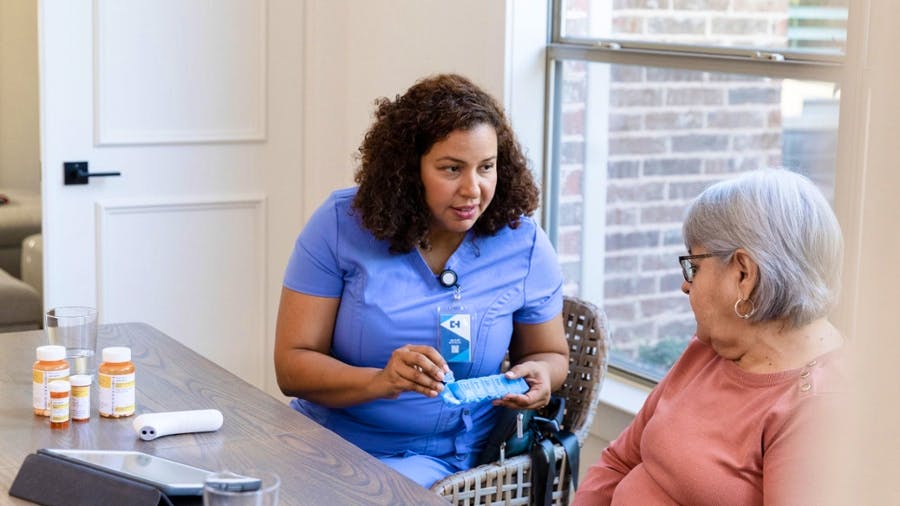Antipsychotics Are Likely Overprescribed Among Home Health Care Patients with Dementia, UR Nursing Study Says
By Gianluca D'Elia
Friday, September 15, 2023

Antipsychotic use is a major safety concern among older adults in home health care, especially for those with Alzheimer’s disease and related dementias. A new study from the University of Rochester Medical Center finds that antipsychotic medications are potentially over-prescribed and used inappropriately among home health care patients to address behavioral and psychological symptoms of dementia.
When researchers examined information on more than 6,000 adults aged 65 years and older who were receiving care from a home health care agency across the state of New York in 2019, they found that patients with Alzheimer’s and related dementias were more than twice as likely to use antipsychotic drugs than patients without those conditions.
The side effects of antipsychotics can be harmful: antipsychotic use is linked to less improvement in daily activities, and a higher risk of heart attacks and death. Most antipsychotic medications that were included in the study are not approved by the U.S. Food and Drug Administration to treat dementia, but the condition is one of the most common off-label uses for those drugs.
 “Many times, when those behavioral and psychological symptoms occur, there seems to be an urgency among family members and providers to offer a quick fix,” said Assistant Professor of Nursing Jinjiao Wang, PhD, RN, lead author of the study. “We’re looking at a medication that is prescribed with good intentions, but very often is not followed up on and is associated with a higher risk of adverse outcomes.”
“Many times, when those behavioral and psychological symptoms occur, there seems to be an urgency among family members and providers to offer a quick fix,” said Assistant Professor of Nursing Jinjiao Wang, PhD, RN, lead author of the study. “We’re looking at a medication that is prescribed with good intentions, but very often is not followed up on and is associated with a higher risk of adverse outcomes.”
Past research and policy efforts focused on antipsychotic use have primarily focused on nursing homes, yet little is known about antipsychotic use by older adults at home in the community setting. A majority of people with dementia are living in the community, especially during transitions between care settings, such as hospital-to-home, which is the focus of this study.
The study utilizes data collected by home health care nurses, who also play an important role in addressing the issue, Wang said. Nurses have the advantage of seeing everything in a patient’s home and noticing the small details.
“Being a home health care nurse allows you to have a deeper perspective and see a complete picture of what’s going on in a patient’s home,” Wang said. “We’re caring for a person who lives in his or her own environment, and we need to be holistic about how we assess and support the patient.”
“That’s exactly what nurses advocate for: the holistic approach to taking care of a human during the most vulnerable times of their lives,” she added.
Wang hopes to empower individuals with dementias to ask questions and take an active role in their own care.
“Don't ever feel shy about asking questions. If you've been taking a medication for 20 years, and you’re not sure if it does anything to you, ask about it,” Wang said. “Sometimes, patients don't want to ask too many questions, but your providers are there to support you.”
The study’s findings also emphasize the importance of caregiver education, strengthened relationships between home health care agencies and pharmacists, and advocating for access to non-pharmacological and behavioral interventions to improve symptom management.
“Dementia can make it harder for someone to manage many aspects of their life, but when you give people the right support, they can still have a good quality of life,” Wang said.
Categories: Research

